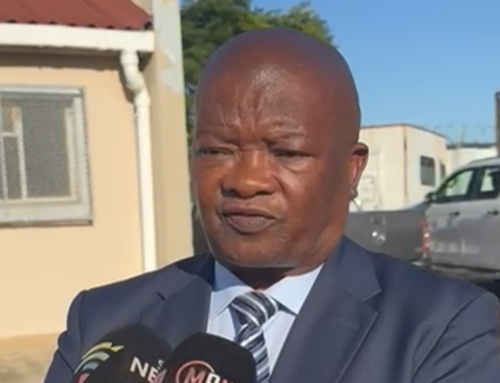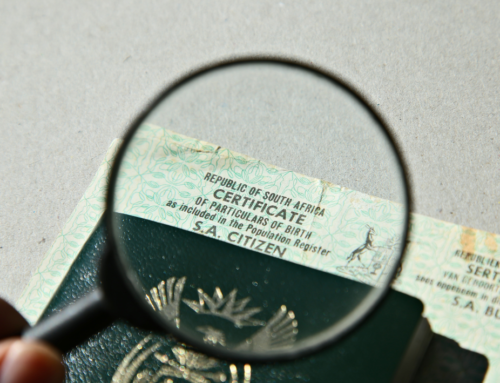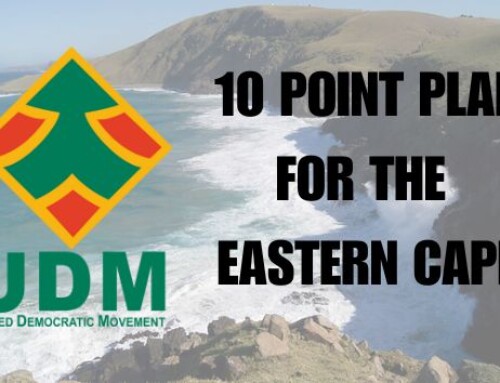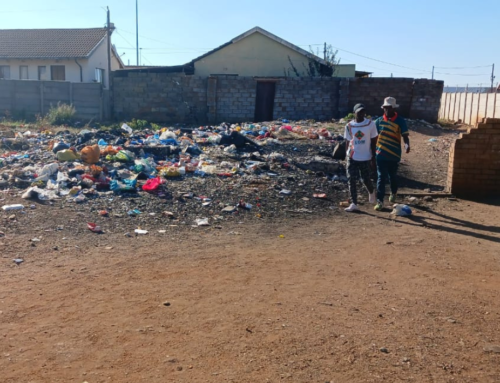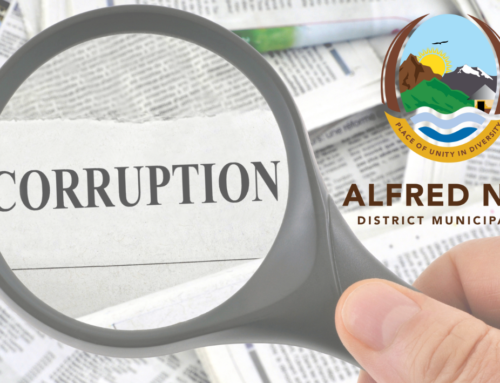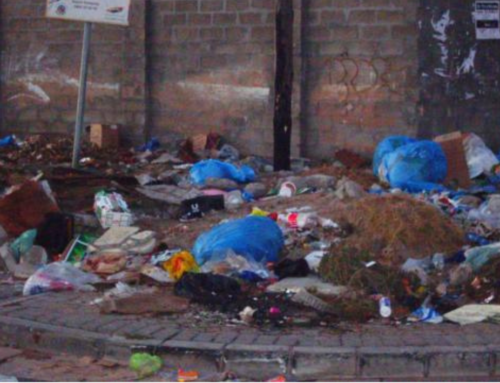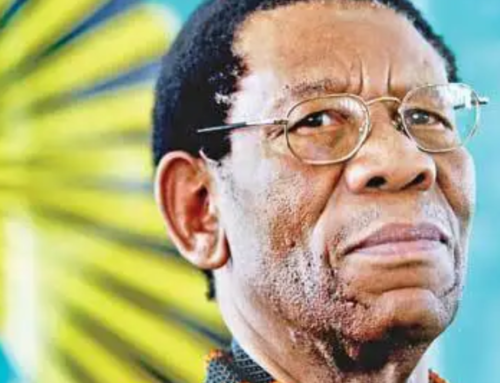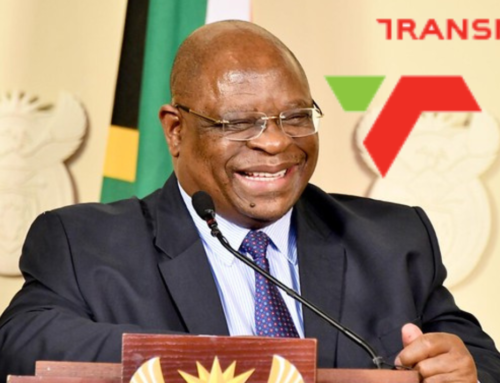• Deputy President of the UDM;
• UDM National Office Bearers;
• Members of our National Executive Committee;
• The party’s provincial leadership;
• The Nelson Mandela Bay Executive Mayor and the people of this metro who are our hosts;
• Members and supporters of the UDM;
• Fellow South Africans;
Introduction
Good day to you all, including those who are watching from home; welcome to the unveiling of the United Democratic Movement’s (UDM) 2019 manifesto.
As the UDM enters its third decade as a party, our message is clear: we are ready to lead and, we are ready to govern!
Our manifesto is available for all to read, but I want to highlight a number of salient points.
This election is all about trust.
We have a president who pleads with you to trust him; and this despite his party.
Why? Because he knows that his party – the ANC – is not worthy of your trust.
We all know what damage it has done, be it to our economy, our safety, our education and health systems, and so the list goes on.
How can it be trusted when it stood meekly by, as Jacob Zuma and his cronies looted the state and stole your hard-earned taxes and deprived you of economic opportunity.
We now know the cost of state capture. Billions of Rand have been stolen and many state institutions and agencies have been weakened.
As a direct result of state capture, for example, PRASA has been disabled. What that means, is that the railway system is disrupted. Notwithstanding the fact that billions of rands of tax-payers’ hard-earned cash are used to rescue the ailing railway system.
In practical terms it is even harder for those people who are lucky enough to have jobs to get to work on time.
To cite another example, Eskom also is a victim of state capture. As we speak, we are unsure whether this rally will complete its business.
There is the likelihood of being visited by an uninvited guest, who brought darkness: load shedding.
Small businesses, which are the backbone of our economy, are most affected and cannot run their enterprises, because of this uncertainty.
This situation is diametrically opposed to what the ruling party has been telling South Africans.
We were told that the change of leadership will bring efficiency. We were told that load shedding is a thing of the past and that the future is bright.
Like PRASA, Eskom is no longer able to perform the public service it should.
Eskom comes up with a new excuse from the already used ones, such as the shortage diesel and coal.
Now we are told that the Hitachi and Chancellor House project i.e. the Medupi and Kusile power stations, which they built, are the reasons for this load shedding.
As we all know, Chancellor House is the ANC’s front company and it is therefore prudent that the ruling party must take full responsibility for plunging South Africa into darkness.
We all suffer as a result.
This kind of institutionalised corruption must be exposed for what it is, without fear nor favour.
So, I ask you: how can South Africans trust the ANC?
The reason we now know more details about state capture, thus far, is because of the revelations at the Zondo Commission of Inquiry.
The Zondo commission exists, because the Public Protector recommended that it be appointed; and the courts agreed.
The rule of law prevailed, despite the onslaught of Zuma and his party. We went to the Constitutional Court with three other opposition parties and succeeded in having the Public Protector’s State Capture report published.
We can be proud of the role we played in protecting the rule of law.
The UDM’s track record speaks for itself, to mention but a few:
• No-one will question that the UDM has consistently batted on the wicket of anti-corruption and the promotion of the ethics of good governance. We have always called a spade a spade, to the annoyance of many.
• We fought the immoral floor-crossing legislation and were vindicated when it was eventually removed from the country’s statute books.
• The UDM took the matter of the irregular lease agreement of the Independent Electoral Commission’s offices to the Public Protector, after which Advocate Tlakula was forced to resign.
• Post 2016 Local Government Elections, the UDM was the catalyst in establishing coalition governments in several metropolitan municipalities.
• We coordinated the biggest march to the Union Buildings, which called for the former president to vacate his office.
• The UDM was at the lead when some opposition parties took the matter of the secret ballot on the no-confidence motion in the former president to the constitutional court.
We succeeded in forcing the speaker of the national assembly to pronounce on how the balloting would take place.
• Since 1999, the UDM has steadily campaigned to have party funding legislation put in place, which has recently been signed into law.
• Most recently, the UDM exposed alleged corruption at the Public Investment Corporation amounting to billions of Rands.
We called for the chief executive officer to pack his bags and leave, which has happened. We have further asked the president to institute a commission of inquiry, which he has done.
• Various communities will attest to the fact that the UDM has intervened on their behalf to have government, at municipal, provincial and national levels, attend to their service delivery complaints.
This has been our mission since the Mandela, the Mbeki, the Zuma and now the Ramaphosa administrations.
• We have further written numerous letters to government to intervene in the malfunctioning SETAs, on behalf of the employees and needy pupils who are affected by the SETA’s inefficiency and corruption.
This is part of our proud track-record of more than the twenty years – that we are a party stands up for what is right and is not afraid to speak the truth to power!
We have defended the constitution and we will continue to do so.
President Ramaphosa may be a decent man, but he is just one man.
It is said that people must vote for the ANC in order to allow President Ramaphosa to continue in office. But there is no guarantee that the ANC will allow him to do so.
There is nothing to stop the ANC from deciding to remove Ramaphosa just as they recalled Thabo Mbeki and replaced him with a person facing over 800 criminal charges.
Today we hear noises from the ANC that the past nine years have been disastrous under the Zuma administration. Yet the current crew was the very one who said that he did nothing wrong. They even invented a slogan that read: “We have a good story to tell”.
I ask the question again: CAN WE TRUST THEM, given that the same organisation was at pains to defend Zuma and was hellbent on discrediting the Public Protector and the judiciary.
Had it not been for the insistence of opposition parties and some civil society organisations, Cyril Ramaphosa would not have occupied an office at the Union Buildings.
We should not be lulled into thinking that the leopard has changed its spots. To prove that, it is the same organisation who has asked Zuma to campaign for them and thus continue to undermine the rule of law.
The voters of this country will not have their intelligence insulted and take a risk to trust them again.
They realise that the ANC is a damaged organisation riddled with deadly division, dangerously unstable, and unfit to lead our great country.
That is why the president did not even mention his party once during the State of the Nation Address. Not once!
He knows that the ANC is a liability. He wants to draw the spotlight of the election on him.
But our electoral system means that you can’t have Ramaphosa without the ANC! Which makes the UDM’s suggestion that the president of the country should be directly elected by voters, as in other democracies.
And so, my message is this: South Africa is not the ANC.
And these days, nor can it be said that the ANC is South Africa.
It has lost touch with ordinary South Africans. It has lost its moral compass.
It has betrayed its history. It has betrayed South Africa.
The misuse of resources permeates both the public and private sectors. Where government is concerned, this mismanagement pervades all three tiers of government.
When the UDM comes to power, one of the first things we shall invest in is professionalizing the civil service in order to deliver quality services.
The appointment of DGs will be the sole responsibility of the department of public services in consultation with the presidency to avoid the current situation where ministers appoint their friends and thus perpetuates corruption.
Another area in which we will invest, is the training of the personnel of the bodies responsible for our safety and security i.e. the police, intelligence and military. Their state of readiness must always be guaranteed so that they may execute their mandate.
The people of this country deserve better and they yearn for a better alternative. They deserve a party that will put them first.
Allow me to talk about the economic needs of South Africa.
South Africa has fast diminishing hopes of being able to respond to the triple threat of acute poverty, ever-rising unemployment and deepening inequality.
The UDM’s manifesto puts the economic needs of people at the centre of its plan for government.
South Africa needs an inspiring and shared economic vision of where we are going in the next ten to twenty years.
Looking back, the Codesa negotiations only focused on political freedom and consequently economic policy formulation has been left to individual ministers to the detriment of the development of a comprehensive and coherent economic plan.
This approach to policy formulation is not sustainable, because as soon as changes occur in government, a new administration tends to disown previously adopted policies. Yet, the same political party has sponsored those ever-changing policies.
To compound matters, the tri-partite alliance’s differing stances on the economy further confuses policies with the National Development Plan being the white elephant in the room.
Although we do not out of hand discard the current administration’s economic summits, the UDM strongly believes that a similar exercise as the Codesa talks needs to take place, but this time in the form of an Economic Indaba.
This forum should gather to address the backlogs and imbalances of the past, and examine international precedents such as the European Recovery Programme of 1948, also known as the “Marshall Plan”.
Closer to home, the Afrikaner government was deliberate in using state resources to successfully address Afrikaner poverty.
Piecemeal conferences and summits will not do the job; it needs a concerted effort with all stakeholders gathered under one roof to hammer out South Africa’s macro-economic policy.
Even the governing tri-partite alliance have differed fundamentally from each other. These differences have raised tensions at Nedlac level. This is one institution that needs to be completely overhauled, given that there are new strong unions in this country such as SAFTU.
South Africa’s economic growth could be realised if we all work together and communicate one message to would-be investors, both local and abroad.
Health care
The quality of healthcare infrastructure and maintenance are often below standard. Hygiene at many clinics is at unacceptable levels and must be addressed immediately.
It remains a sad fact that many South Africans must travel huge distances to the nearest clinic or hospital. Therefore, health infrastructure and services need to be provided closer to the poor.
A UDM government will commit itself to healthcare that is linked to other social cluster portfolios, recognising the role of social welfare, water and sanitation, basic life skills and awareness to improve the basic health of the nation.
Education
One of the UDM’s main priorities is to invest resources in schools, where it is sorely needed. We can never advance as a nation if we do not educate our young. It is the most serious structural constraint that the economy faces.
Hence, a UDM government will prioritise the building, fixing and upgrading of school infrastructure.
A UDM government will also make additional funding available to ensure that every school has the required learning materials and resources, and ensure that it is delivered on time.
There are major discrepancies at state schools when one talks resource spending and infrastructure. Some have the necessary tools to fulfil their obligations to our children and others lack even the bare necessities.
President Ramaphosa announced that advanced technology would be used to enhance teaching, but one cannot imagine a situation where a child works with a tablet at a mud school, who has no electricity to even charge the battery.
We will establish a permanent commission on education whose primary responsibilities will be to establish and build upon basic educational policy pillars as well as ensuring that there is stability in the curriculum to give our learners the best opportunity to succeed in their studies.
The UDM will reopen teacher training colleges and impose national standards for teachers and ensure that they have the necessary resources to provide the highest level of professionalism possible.
School inspectors will be brought back to deal with erratic attendance by pupils, teacher laziness and to ensure that the administrative tasks are attended to.
Safety and security
The safety and security of our country and her people leave much to be desired. The criminal justice system has collapsed. When we hear about the information revealed in, for instance, the Zondo commission, one wonders if our security bodies are fast asleep as this happened under their watch.
Under a UDM government, it will take steps to professionalise the criminal justice system.
We will also lobby SADC countries to seriously consider establishing an apparatus to respond to cross-border-crime and terrorism, as well as the gathering of intelligence.
Public transport
There is an over-reliance, coupled with lack of maintenance of our road infrastructure, which has led to its rapid decay.
A UDM government will return the units which used to maintain our roads, and not solely to rely on the current tender system that poorly pays EWP employees.
A UDM government will further explore the possibility of having an intercity highspeed rail put in place, which could present the nation with the following advantages:
a) The reduction of accidents and fatalities on our roads.
b) Greater access to specialised services, e.g. courts, legislatures, hospitals and healthcare specialists, universities, etc.
c) Roads that are taxed less by heavy vehicles that damage road surfaces which in turn cost a lot of money to maintain.
d) The reduced dependence on road transport will have the spin-off of speeding up our economy.
Such a profound transformation of our public transport system would be possible via the refurbishment and adaptation of existing railway lines and building additional capacity where needed.
Specific UDM proposals
Our manifesto is comprehensive and covers other areas that are important for a dignified and prosperous life, but I want to focus on a few areas where we offer distinctive approaches:
Job creation
The unemployment crisis in South Africa has many causes that underscore the need for a comprehensive strategy.
As one solution, a UDM government will launch a massive initiative focussing on job creation through infrastructure maintenance and development.
There is a big chunk of unskilled labour which could be absorbed in working in such programmes. They could, for instance, work on the upkeep of government buildings, construction and maintenance of dams and cleaning silted rivers.
They could also be tasked to play a meaningful role in restoring eco-systems and biodiversity by fencing off land for agrarian and grazing purposes. Others could be skilled to take care of waste management.
The UDM also believes that, for the development of the South African and African economies, it makes sense to gradually cease the mass export of raw materials so that jobs are created locally through homegrown processing and manufacturing.
There must be a paradigm shift in the way that we think of job creation and focus on the empowerment of our youth to be wealth creators, future employers, manufacturers and business owners.
In order to achieve this, the UDM will do the following:
• Establish a distinct national fund, to assist frustrated entrepreneurs in getting the basic tools to start their businesses.
• Invest in sector-based planning and implementation, including the creation of sector-specific banks to provide financial assistance to historically disadvantaged groups and individuals.
Such sector banks could assist the youth to start their own business in, for instance, the textile, IT, tourism, hospitality, agriculture industries.
Billions of rands are wasted on SETAs, whilst they could be transformed into such sector banks.
• Remove the bottlenecks on the registration of companies by introducing an online application system to expedite registration.
• Identify markets for small firms through promoting domestic and foreign connections to adequately address both supply and demand.
• Embark on massive training programme of entrepreneurs to build and manage their companies.
• Identify loan and capital sources, as well as facilitating loans and investments in community businesses.
• Devote more resources to promote “buying South African” as a tool to stimulate local wealth generation and job creation.
Land economy
We support land reform and land redistribution – it is vital for our agrarian and rural economies, but also vital for restoring the dignity of our people, recognising the injustices of the past.
But the issue is complex and must be understood as such: there are no easy answers and we must work to find consensus on a solution to benefit the landless.
So, we need to build a strong, resilient consensus about how to tackle it.
In the proposed amendment of the constitution, government could be empowered so that it may expropriate land without compensation, but subject to the development of comprehensive legislation.
Such legislation must answer the following:
• Who exactly (individuals, companies and/or government) will be affected and how?
• How does food security and economic stability impact implementation i.e. does it prevent expropriation in specific circumstances, and what those would be?
• How will government handle rapid urbanisation and an ever-increasing need to make land available in cities which denudes rural communities and local economies?
• How will traditional leaders and rural communities be affected?
• How will entities such as traditional trusts be impacted?
• What will be the effect on the land tenure system particularly in rural areas?
• What would the position be on the sale of, in main, urban land to foreigners?
• How will the issuing of title deeds be sped up so that entrepreneurs may use them as collateral to secure capital for start-ups?
Sustainable development: the environment
Protecting the environment and our national resources are often placed on the backburner since the consequences of abuse are not immediately appreciable.
People find an issue such as the depletion of the ozone layer an abstract concept that does not directly affect them.
Many South Africans do not concern themselves with the environment, because of the notion that “it’s someone else’s problem” and therefore do not take responsibility for their own actions.
Climate change got just one meagre line in President Ramaphosa’s recent State of the Nation Address. That is a serious abrogation of responsibility.
A UDM government will not make this mistake. It will take responsibility.
It will join the dots between climate change and environmental degradation to poverty and human development and economic policy.
For development, to be both just and sustainable, it must recognise the inter-connectedness of the environmental, social and economic dimension of the crisis we face.
High levels of poverty contribute to the damage of our environment. For example, the need to stay warm in the winter is a primary goal for rural and township communities, whilst the negative impact of wood collection on the environment may not be understood.
A UDM government will implement a “Marshall Plan” to save our natural heritage that shall identify, build and reward individuals, institutions and community-based organisations to rescue and conserve our environment.
We will introduce “green battalions” to counter, amongst others, soil erosion, over-grazing, deforestation and to also protect biodiversity, especially in rural South Africa.
This country has failed dismally to manage waste. It is worse in the townships, informal settlements, towns and rural areas.
South Africa is a tourism mecca in her own right, and something must be done to address waste management.
Under a UDM government, conservation and socio-economic development shall be linked by allowing communities to have sustainable access to the life-supporting and income-earning potential of nature reserves and conservation areas.
The UDM believes that, through the implementation of bio-diversity programmes thousands of jobs can be created, because we believe that it is possible to generate jobs and business opportunities whilst being environmentally responsible.
We will implement tax incentives to encourage the private sector to invest in the development of technologies for conservation and sustainable use of bio-diversity programmes.
This sets us apart from all the other political parties in South Africa.
We offer a realistic as well as visionary alternative approach to our sustainable development challenge.
Hence, a UDM government will also roll out an information campaign to teach the uninformed of the impacts of their actions on the environment and why it matters to their future prosperity as individuals and as communities.
What is noticeable in all the towns and cities is that you hardly see trucks collecting garbage, and residents just find an empty space to dump their waste.
A UDM government will embark on a country-wide clean-up campaign. We will provide the necessary tools to keep our country clean and, in the process, create jobs, as well as opportunities for small businesses to flourish.
We will consolidate the massive number of environmental laws and regulations into one concise and effective law.
Once in power, a UDM government will be active in the enforcement of environmental law with individuals or organisations that contravene it to suffer severe penalties.
Budgets should be adjusted to make waste management a primary goal.
The UDM’s position on coalition government
I also want to touch on the issue of possible coalition governments after this year’s elections.
If it should deliver no outright winner, as forecast by political analysts, the question of coalitions arises.
In this regard, the UDM is of the view that any coalition government should be regulated so that the principle of serving the people is not suppressed by wanton political intimidation and playing the numbers-game that typifies the present local government dispensation.
Hence it is important that coalition partners iron out their relationships directly after elections and publish their compacts so that voters clearly understand how that coalition will work and to have a set of standards to measure any coalition government’s performance.
Role of faith-based organisations
Religious values and practices are deeply entwined in the fabric of our daily lives, which means that faith-based organisations play a very important role in providing moral leadership and guidance.
We, as a nation, have lost our moral compass as is evidenced by the crime and corruption that have become a permanent feature of our lives.
During the apartheid years, the work of faith-based organisations formed a vital part of overthrowing that discriminatory regime.
It could however be argued that, in the South Africa of today, they play a less critical part in leading our people on the path of decency, honesty and goodness.
The UDM therefore calls on all faith-based organisations to again be the voice of reason for a nation in moral dire straits.
Closure
It is not rocket science to see that the gap between the haves and the have-nots is rapidly widening.
As South Africans we need to address the backlogs and imbalances of the past.
Our policies must be in line with our constitution which seeks to improve the quality of life for all South Africans.
Once this has happened the gap between black and white.
This is the consistent, principled approach to politics and policy that the UDM offers.
We are ready to lead, and we are ready to govern!
We offer a political home for all South Africans, united in the spirit of South Africanism by our common passion for our country, mobilising the creative power inherent in our rich diversity, towards our transformation into a prosperous and winning nation.
The UDM has demonstrated integrity amongst all our members and leadership.
Our three guiding pillars, integrity, dignity and prosperity, feed our minds and our actions as a modern political party that firmly stands against corruption and the exploitation of South Africans; especially the poor who cannot weather the effects of the ruling party’s dishonest, bungling government and don’t care attitude.
For the past two decades the UDM has left no stone unturned in our fight to have corruption eradicated wherever we found it.
We will continue that fight by ensuring effective procedures and establishing special courts and implemented to investigate and prosecute those in the public and private sector involved in corruption.
We will continue that fight.
And we will not rest until the dignity of our people is restored and everyone has the opportunity to live a prosperous and flourishing life.
Thank you.












